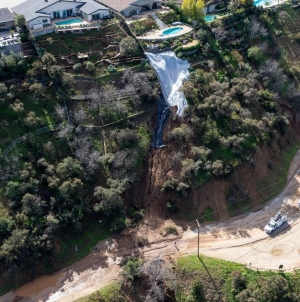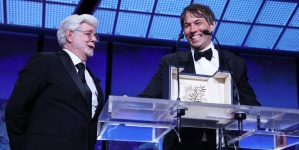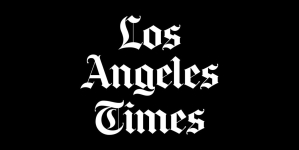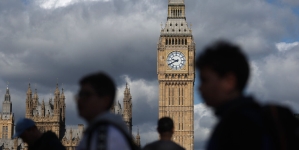-
At Republican Jewish Coalition Event, Haley Criticizes Trump for Comments on Israel-Hamas War - October 29, 2023
-
A portion of Mulholland Drive, damaged by mudslides in winter storms, reopens - May 26, 2024
-
‘Maybe You Don’t Want to Win’ - May 26, 2024
-
Donald Trump Putting Law Enforcement in Danger: Attorney - May 25, 2024
-
Avoid the waters of these 5 L.A. County beaches this holiday weekend, public health officials say - May 25, 2024
-
Bawdy Comedy ‘Anora’ Wins Palme d’Or at Cannes Film Festival - May 25, 2024
-
Map Shows Heat Wave Zone Spread Into Five New States - May 25, 2024
-
Azusa police arrest suspected slingshot-wielding vandal - May 25, 2024
-
Donald Trump Hammers Judge Ahead of Jury Instructions - May 25, 2024
-
Sometimes U.S. and U.K. Politics Seem in Lock Step. Not This Year. - May 25, 2024
At Republican Jewish Coalition Event, Haley Criticizes Trump for Comments on Israel-Hamas War
A series of speeches by Republican presidential candidates on Saturday to a large gathering of Jewish donors and activists demonstrated how the escalating conflict in the Middle East has elevated foreign policy into a dominant campaign issue and exposed fresh divides within the primary contest.
Nikki Haley, the former ambassador to the United Nations, attacked former President Donald J. Trump as “confused” on the threats facing the United States and Israel. Mr. Trump promised to fight the “jihadists, the terrorists, the Marxists” abroad and at home. And Gov. Ron DeSantis of Florida denounced the “false moral equivalency” between Hamas and Israeli deaths.
The remarks to the Republican Jewish Coalition, set in a sprawling convention center at the Venetian in Las Vegas, took place as Israel expanded its ground operations in Gaza, and at a critical moment for the primary contest. With Mr. Trump far ahead in the polls, time is growing short for his challengers to distinguish themselves. And Ms. Haley and his other rivals see new opportunities in his clumsy response to attacks in Ukraine and Israel, which threaten to expand into broader regional conflicts.
Mr. Trump, who spoke last, ignored the other candidates during his remarks, focusing squarely on attacking President Biden as weak, while arguing that the world would be safer if he were still in the White House.
“If I were president, the attack on Israel would never ever have happened,” he told the 1,500 attendees who packed the ballroom. “I think you believe that. Ukraine would never have happened. Inflation would have never happened.”
Mr. Trump struck the most militaristic tone of the speakers, warning attendees of threats from “a lot of young strong men” entering the country who are the “same people that attacked Israel.” And he praised Hungarian Prime Minister Viktor Orban, the neo-authoritarian leader who is admired by far-right nationalists in the United States and Europe and who has been accused of employing antisemitic tropes for political gain.
In his remarks, Mr. Trump cast himself in a similar vein as Mr. Orban — a “very strong man,” he said — promising to keep the country safe with threats of force.
“If you spill a drop of American blood, we will spill a gallon of yours,” he said, arguing that the world had become less safe under the leadership of Mr. Biden. “I will defend America, and I will defend Western civilization from the barbarians and savages and fascists that you see now trying to do harm to our beautiful Israel.”
Mr. Trump did not comment on the departure from the race of his former vice president, Mike Pence, who had announced he was ending his presidential bid before Mr. Trump took the stage. In the final speech of his campaign, Mr. Pence warned his party against adopting an isolationist foreign policy — like the policies put forward by Vivek Ramaswamy, who preceded him on the stage.
The annual meeting of the Republican Jewish Coalition was perhaps the highest-profile gathering of the fall Republican primary season, taking on greater urgency after Hamas’s attack on Israel three weeks ago. Last week, the organization was added as a sponsor of the third Republican debate, a reflection of how Israel unified a broad coalition of party voters and officials, including foreign policy hawks, business leaders and evangelical Christians.
It is also a galvanizing moment for Republican officials: In a last-minute pivot, the event’s schedule changed to accommodate the first national appearance by the newly elected House speaker, Mike Johnson, who addressed the group on Saturday night.
“We are going to stand like a rock with our friend and our ally Israel,” said Mr. Johnson, an evangelical Christian who noted how his faith led him to support the nation. “As a Christian, I know, and we believe, the Bible teaches very clearly that we’re to stand with Israel.”
Ms. Haley used her address to launch some of the most scathing attacks of her 2024 primary race, questioning Mr. Trump’s capacity to manage the foreign affairs of a country facing multiple military entanglements abroad. She highlighted remarks by the former president criticizing Israeli intelligence and Prime Minister Benjamin Netanyahu as weak just days after the attack.
“As president, I will not compliment Hezbollah. Nor will I criticize Israel’s prime minister in the middle of tragedy and war. We have no time for personal vendettas,” she told the crowd of donors, activists and officials. “With all due respect, I don’t get confused.”
Ms. Haley, known for her staunch support of Israel as Trump’s ambassador to the United Nations, has been climbing in the polls after two strong debate performances.
“Eight years ago, it was good to have a leader who broke things. But right now, we need a leader who also knows how to put things back together,” she said. “America needs a captain who will steady the ship, not capsize it. And Republicans need a candidate who can actually win.”
All eight candidates who appeared offered their strong support for Israel, pledging to back the military operations and fight against rising antisemitic threats at home, particularly on college campuses.
Of all the candidates, only Mr. Ramaswamy qualified his support, signaling that he would be less inclined to provide military support to Israelis for the escalating conflict. The entrepreneur and author tried to win over the crowd, entering to the music of Matisyahu, an observant Jewish hip-hop artist, reciting a line of a Jewish prayer in Hebrew and quoting liberally from David Ben-Gurion, the first prime minister of Israel.
In his address, which involved a meandering recounting of modern Israeli military history, Mr. Ramaswamy attempted to recast a more isolationist stance as supportive of Israel’s right to self-defense.
“If Israel wants to destroy Hamas, it should go ahead and destroy Hamas,” he said. “But these are decisions for Israel to make, not America. I am not running for president of Israel. I am running for president of the United States.”
Chris Christie, the former governor of New Jersey who has for months been Mr. Trump’s chief antagonist on the campaign trail, struck a more somber tone in his remarks, saying “this is too serious a moment for pettiness.”
Mr. Christie and Mr. Ramaswamy were the only candidates whose speeches were met with resounding boos, though from different corners of the audience: Mr. Christie has been a target of Trump supporters, and Mr. Ramaswamy has been widely criticized for his hesitation to provide military support.
Mr. Trump entered Saturday’s event as the crowd favorite, beloved for his record on Israel as president, which included moving the American embassy to Jerusalem and signing the Abraham Accords, an agreement normalizing relations between Israel, the United Arab Emirates and Bahrain. He also cut aid for Palestinians, and his administration took steps to designate a campaign to boycott Israel as antisemitic.
But his criticism of Israeli intelligence and Mr. Netanyahu as weak, and his description of Hezbollah attackers as “very smart,” has invited attacks from his rivals.
Amid the expression of concern and solidarity for one of America’s closest allies, Republican politicians saw political opportunities in the divisions that the conflict has opened up at home.
Several of the speakers on Saturday disparaged progressive Democratic lawmakers, particularly Representatives Ilhan Omar and Rashida Tlaib, whose names drew loud boos from the audience. Others spoke about the tensions on college campuses, where students have clashed over the war.
“Progressives say they’re all about the safety and feelings of minorities, the oppressed, the marginalized,” said Senator Tim Scott of South Carolina. “But when it comes to Jewish Americans who are hurting — they are silent.”
Source link































